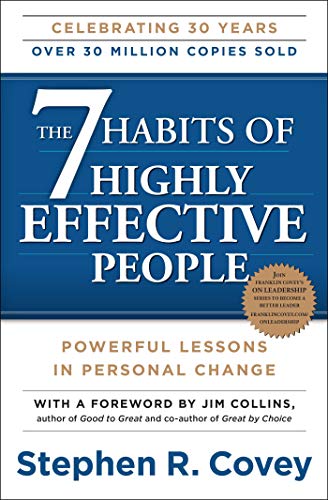Seek First to Understand, Then to be Understood
Seek First to Understand, then to be understood
Covey’s 7 Habits of Highly Effective People
G'day all!
This week we'll look at Habit 5: Seek First to Understand, then to be understood.
Covey proposes that we have the tendency to rush in and fix things up but often fail to take time to really understand the promise first. A lot of the time this comes from a good place. Someone we care about has a problem. We want to help to fix it.
However, we should first seek to understand through empathic listening. This a means avoiding listening with an intent to reply and filtering what is being said throughout own paradigms. I found this very hard to do.
The Five Levels of Listening.
1. The first is ignoring.
2. The second is 'pretending'. Saying "yeah" and "uh-huh".
3. The third is 'selective listening' where we only hear parts of the conversation.
4. The last is 'attentive listening' which involves focusing energy on the words being said and paying attention. The fifth level is practiced by very few and is termed empathic listening.
Empathic listening involves listening with an intent to understand. Instead of projecting your own autobiography and assuming feelings, thoughts and motives, you try and understand the reality inside the other person's heart and mind.
Another advantage of empathic listening is making deposits into the Emotional Bank Accountants. By listening with empathy, you give the other person psychological air.
As I said earlier, empathic listening is hard. It is also risky. It takes a great deal of security to open yourself up to influence.
We also tend to listen autobiographically and respond in one of four ways.
We evaluate what is being said (as something we agree or disagree with).
We probe (ask questions from our own frame of reference).
We advise (give advice based on our own experience) or we interpret (we try to figure people out based on our own motives and behaviours)
So how should respond?
Firstly, but least effectively, you can mimic content. It is easy to do.
Secondary, you can rephrase content. This is a little more effective but still limited.
Thirdly, you can reflect feeling.
Lastly, by seeking to understand, rephrasing content and reflecting feeling, you build trust and allow others to work through their own thoughts and feelings.
Seeking to be Understood takes courage. Most people try to convince other people of the validity of their logic without first considering their character or their relationships.
To be understood, you first need to get into their frame of mind. By presenting your ideas in the context of a deep understanding of their paradigms and concerns, you significantly increase the credibility of the ideas you are presenting.
For now, though, try looking at how you listen to others. Do you try and solve their problems? Do you see their experience through your own paradigms? Do you give advice based on your own feelings and experiences? Try understanding first. It is really hard to do but give it a try. It is hard to break existing habits but communication is the key to relationships.




